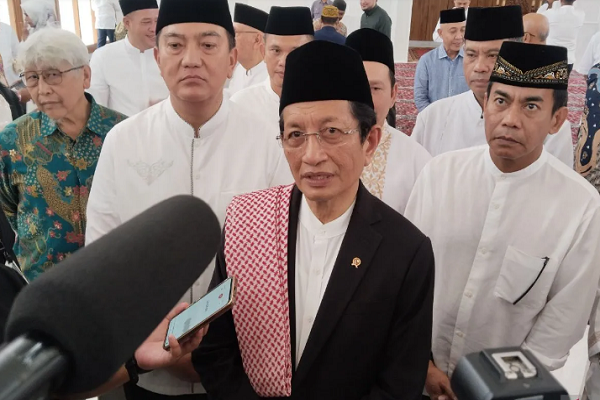Speaking after the inauguration of a mosque in Palembang, South Sumatra, on Saturday, Nasaruddin Umar urged citizens to tap into the full potential of mosques, broadening their functions beyond religious purposes.
He called upon Muslims to emulate the way people during Prophet Muhammad's (PBUH) era used mosques.
"In the time of the Prophet, mosques were not merely houses of worship. Back then, only 10 percent of the mosque's function was dedicated to prayer, while the rest served social and community purposes," he pointed out.
The minister then advised Indonesian Muslims to make the most of mosques. He emphasized that mosques should support activities such as education, health services, interfaith meetings, wedding celebrations, circumcisions, and the management of Islamic philanthropic funds.
"Let us use mosques in a proportionate manner. Let us preach in a way that embraces people. The essence of preaching is to draw people into mosques, not push them away," he said.
Umar, also the grand imam of Southeast Asia's largest mosque, Istiqlal, made similar statements on December 11, 2024.
In a statement released by his office, the minister emphasized the importance of transforming mosques into inclusive, one-stop centers for Muslims of all ages, including children, to engage in religious and other positive activities.
"A mosque is like a place where the religiosity of children can be nurtured and strengthened. We should not scare children away or ban their presence in mosques," he said.
He called on mosque administrators to change how people view mosques, transforming them into friendlier places for children. "We should not be afraid of children making a mosque dirty. A mosque will remain clean if it is properly managed," he added.
Read More:
250,000 Worshippers Expected to Perform Eid Prayers at SE Asia’s Largest Mosque
As of October 2024, there were 682,000 mosques and prayer halls in Indonesia, according to the Ministry of Religious Affairs.
Indonesia is home to Istiqlal Mosque, the largest mosque in Southeast Asia. Located in Jakarta, it can accommodate approximately 200,000 worshippers.
As of the first semester of 2024, the number of Muslims in the country was approximately 245.97 million, or about 87.08% of the total population of 282.48 million, according to data from the Ministry of Home Affairs.
This makes Indonesia the country with the largest Muslim population in the world, though Pakistan briefly surpassed it earlier this year.
...................
End/ 257

